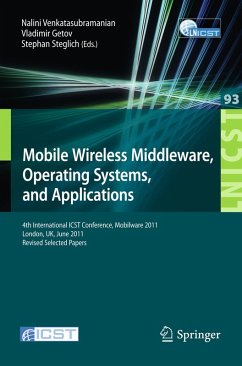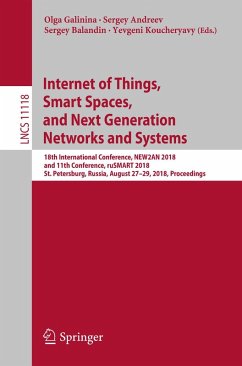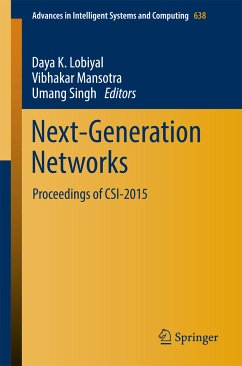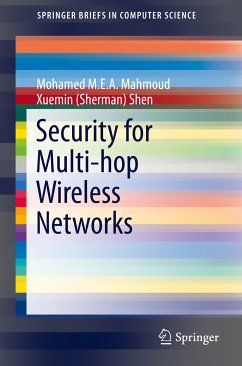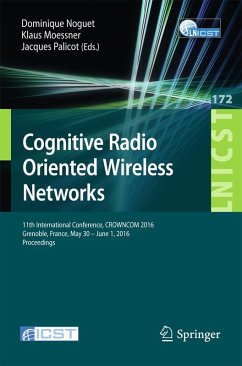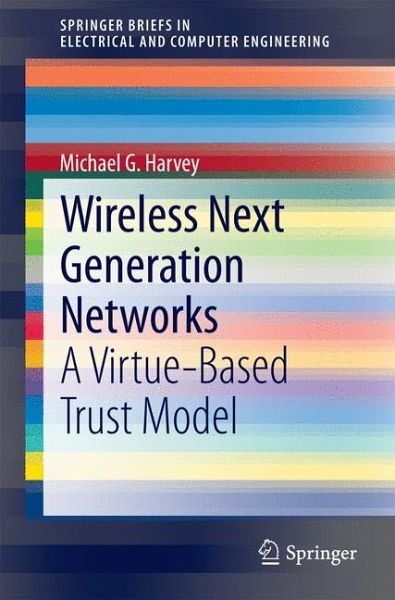
Wireless Next Generation Networks (eBook, PDF)
A Virtue-Based Trust Model
Versandkostenfrei!
Sofort per Download lieferbar
40,95 €
inkl. MwSt.
Weitere Ausgaben:

PAYBACK Punkte
20 °P sammeln!
This SpringerBrief proposes a trust model motivated by virtue epistemology, addressing the need for a more efficient and flexible trust model for wireless next generation networks. This theory of trust simplifies the computation and communication overhead of strictly cognitive-computational models of trust. Both the advantages and the challenges of virtue-based trust models are discussed. This brief offers new research and a general theory of rationality that enables users to interpret trust and reason as complementary mechanisms that guide our rational conduct at two different epistemic level...
This SpringerBrief proposes a trust model motivated by virtue epistemology, addressing the need for a more efficient and flexible trust model for wireless next generation networks. This theory of trust simplifies the computation and communication overhead of strictly cognitive-computational models of trust. Both the advantages and the challenges of virtue-based trust models are discussed. This brief offers new research and a general theory of rationality that enables users to interpret trust and reason as complementary mechanisms that guide our rational conduct at two different epistemic levels. The presented model of human social interaction is designed for the highly dynamic and unstructured environment of the mobile Internet and wireless next generation networks. Wireless Next Generation Networks: A Virtue-Based Trust Model targets network engineers, cognitive scientists, AI researchers, philosophers, and social scientists. Advanced-level students studying computer science, electrical engineering and social science will also find the interdisciplinary perspective useful.
Dieser Download kann aus rechtlichen Gründen nur mit Rechnungsadresse in A, B, BG, CY, CZ, D, DK, EW, E, FIN, F, GR, HR, H, IRL, I, LT, L, LR, M, NL, PL, P, R, S, SLO, SK ausgeliefert werden.





